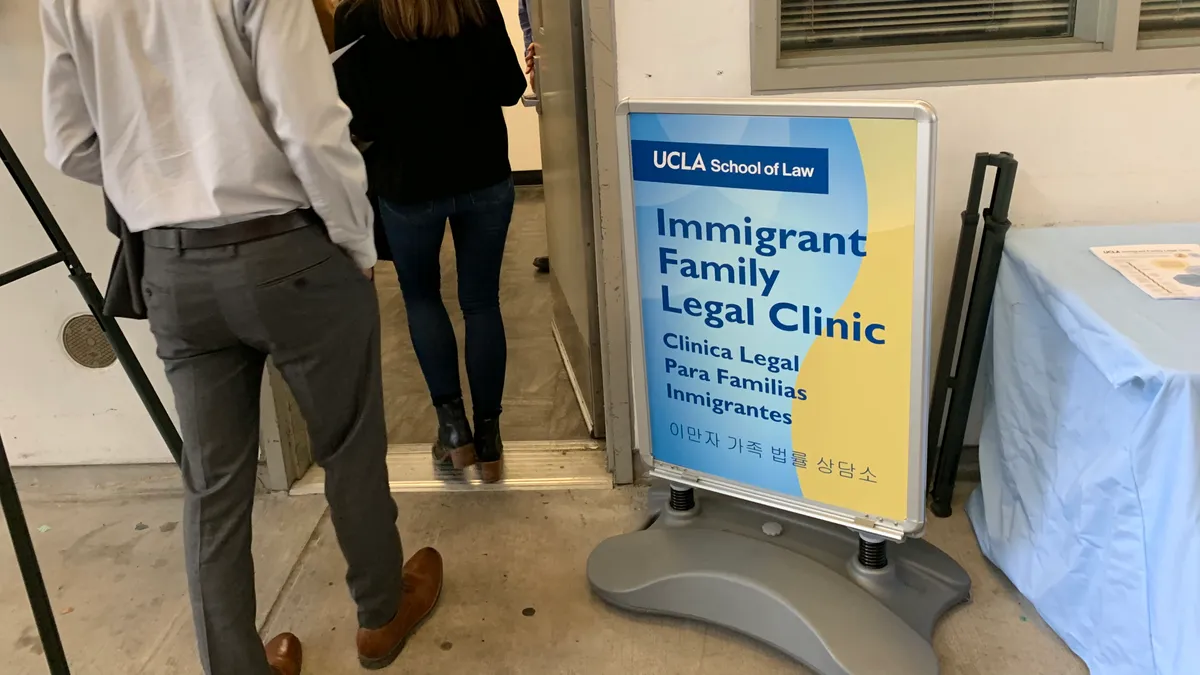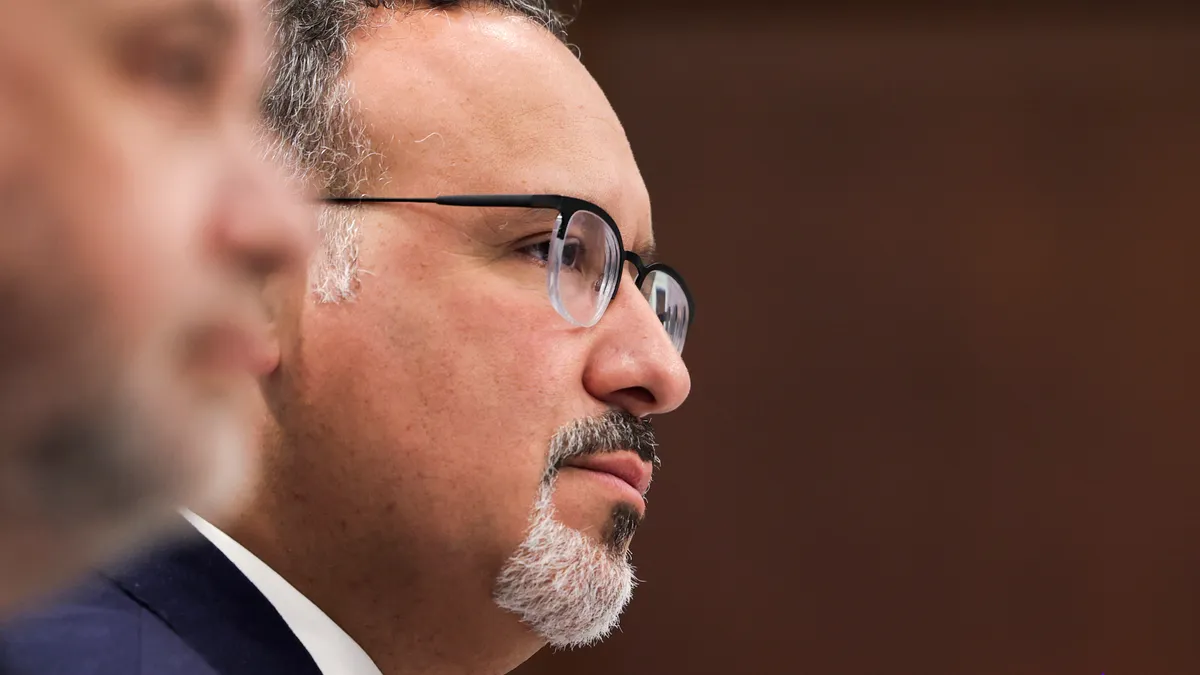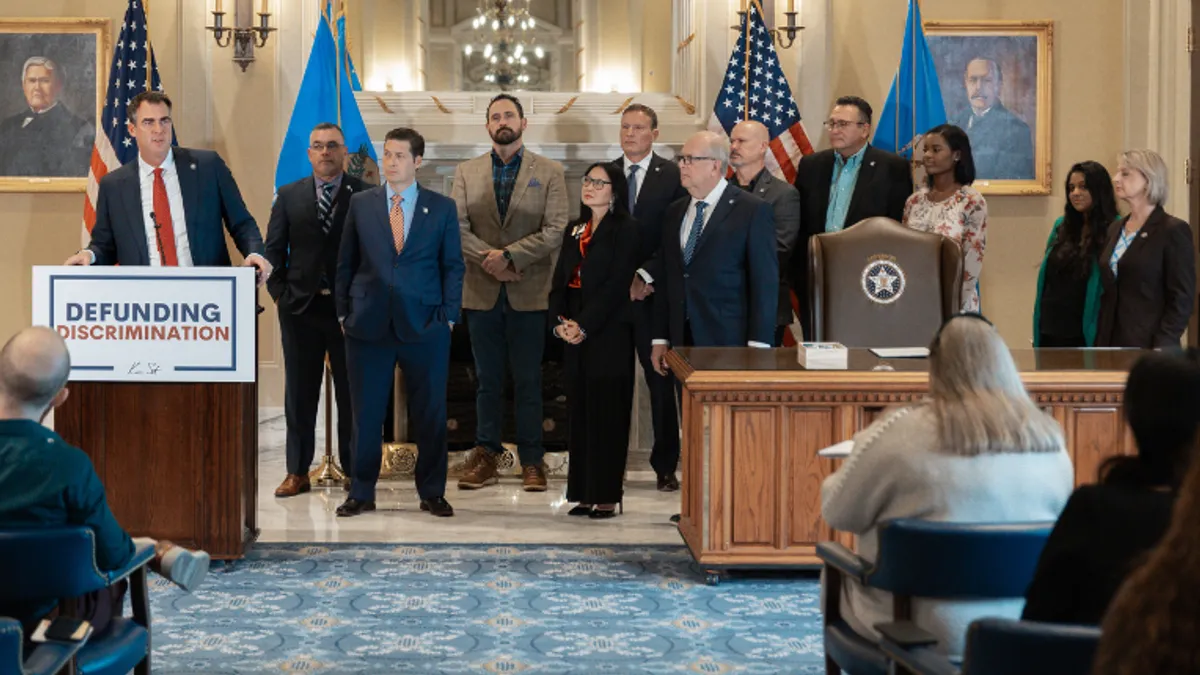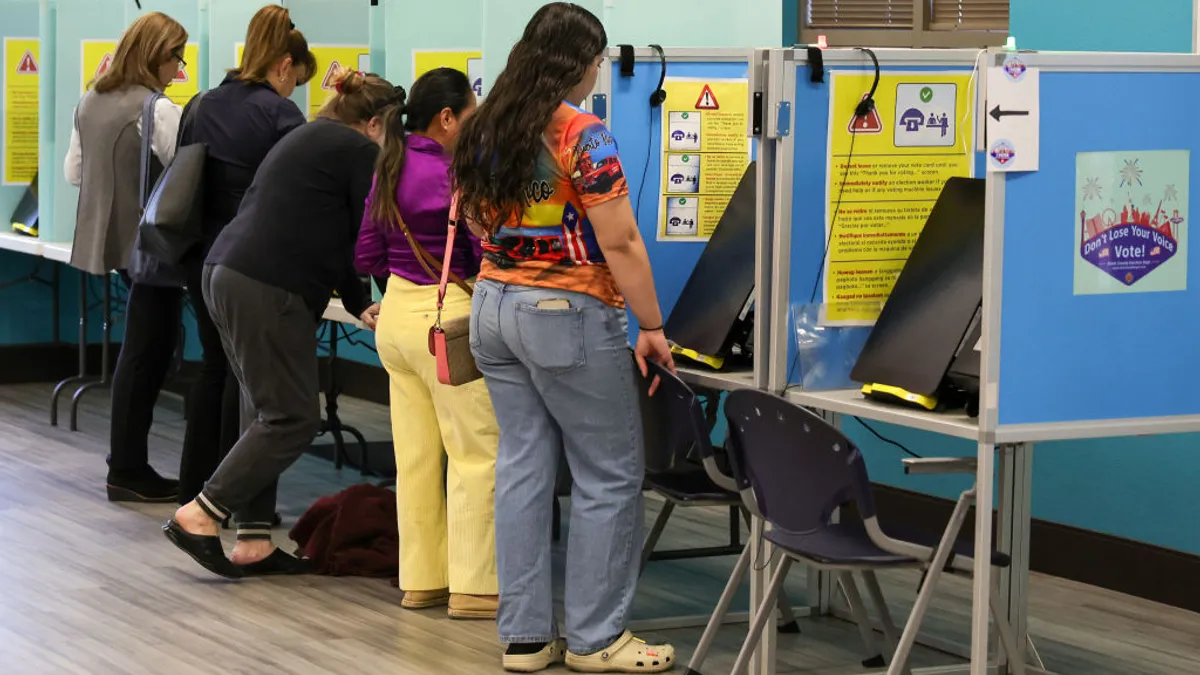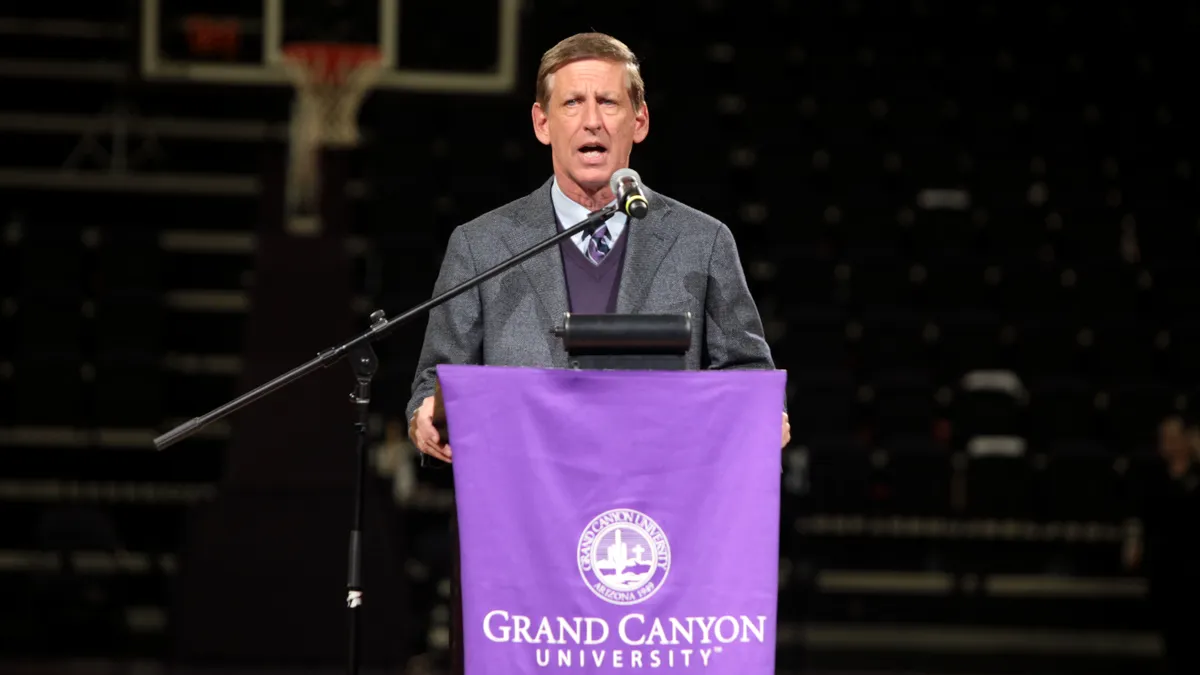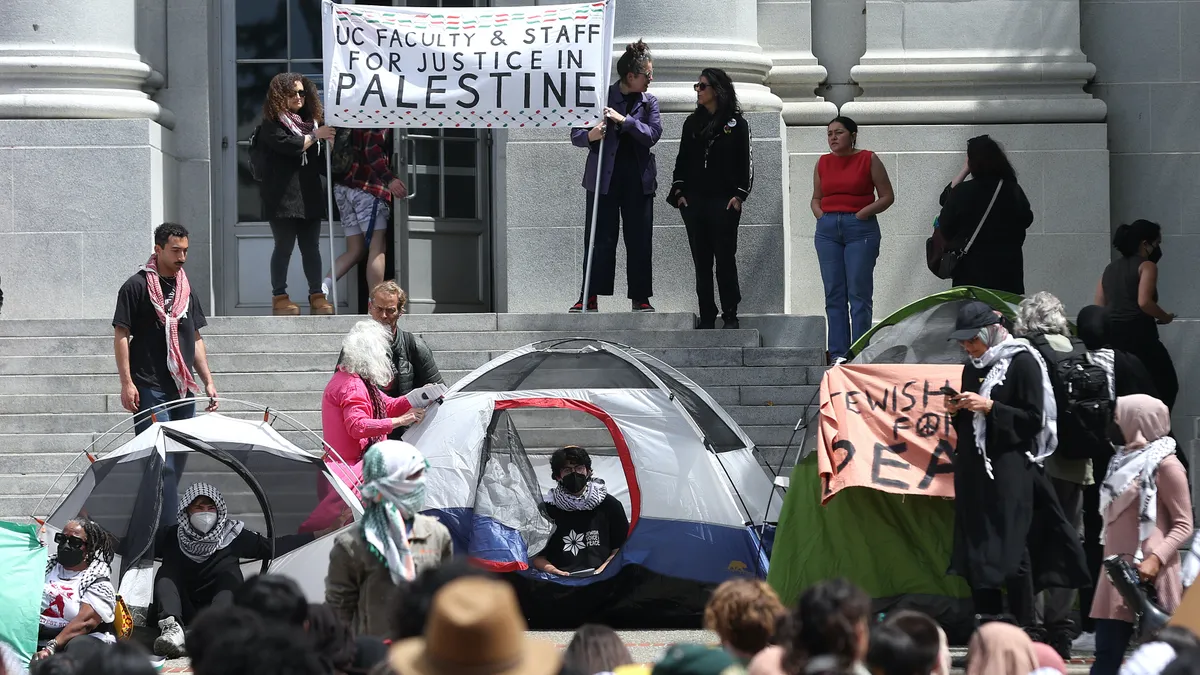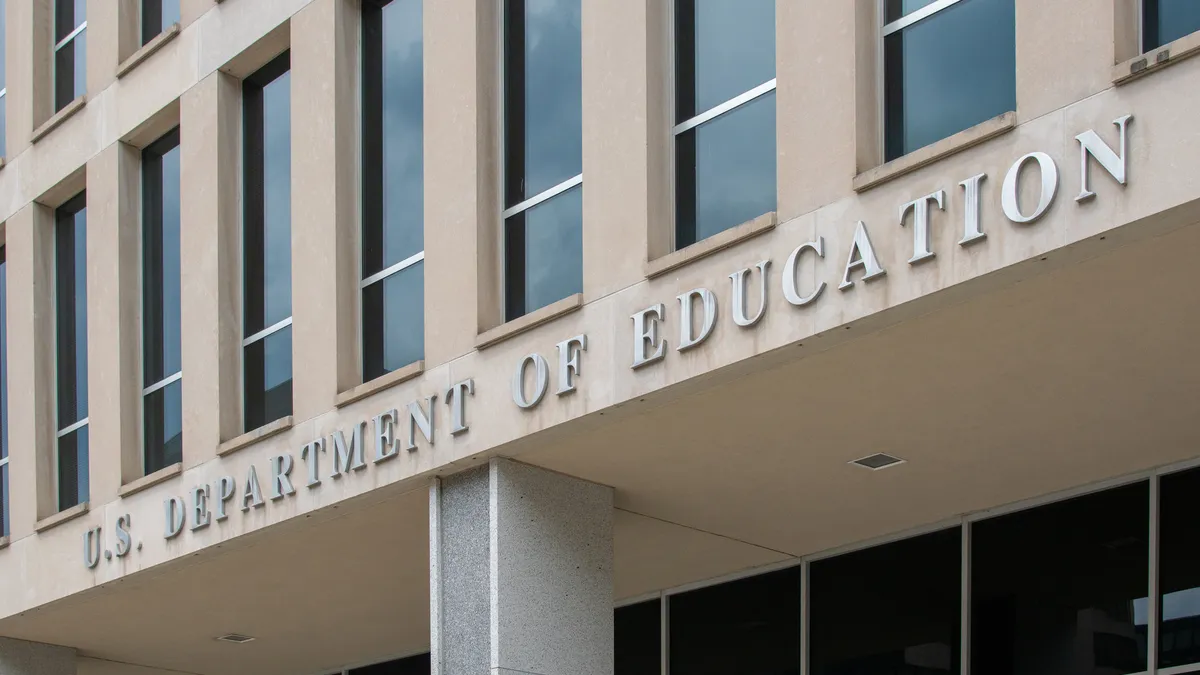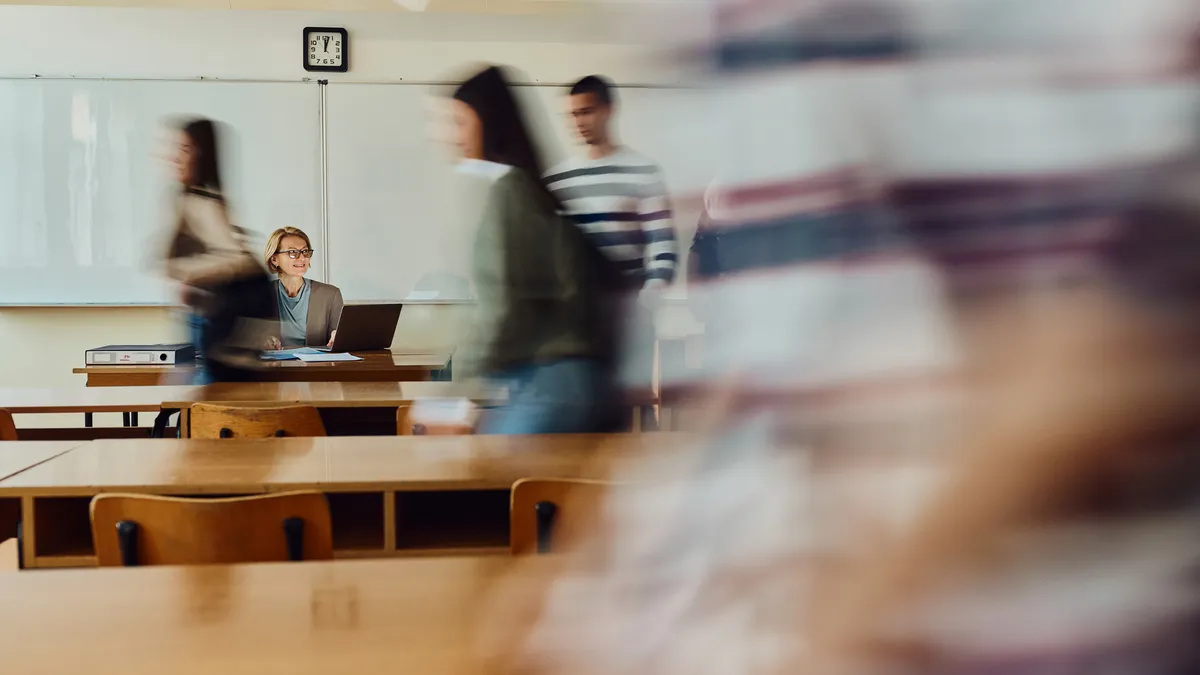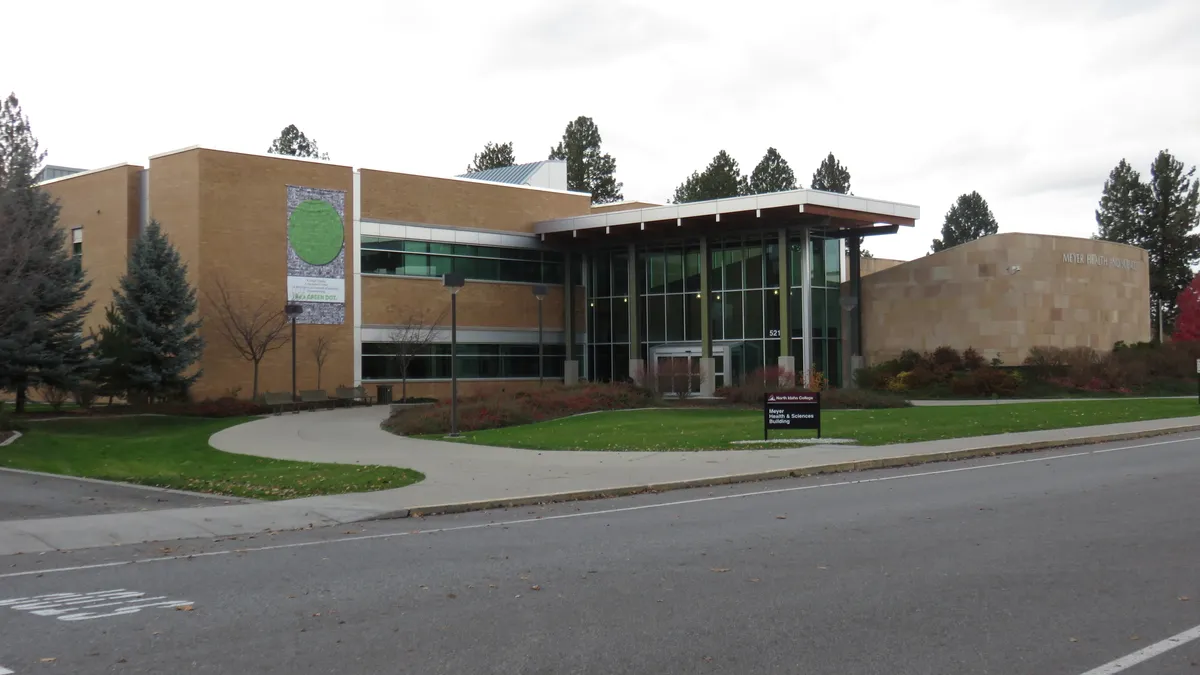LOS ANGELES — Almost 51 years ago, the son of an immigrant family shot and killed Senator Robert F. Kennedy at the Ambassador Hotel, west of downtown Los Angeles.
Today the complex of six community schools named for Kennedy — and occupying the same piece of land as the site of the assassination — houses a new legal clinic designed to assist families in the immigrant-dense communities of Koreatown and Pico-Union.
The Immigrant Family Legal Clinic at RFK Community Schools is a partnership between the University of California, Los Angeles (UCLA) School of Law, the UCLA Graduate School of Education and Information Studies and the Los Angeles Unified School District (LAUSD).
"This effort is about transforming Los Angeles," LAUSD Board President Monica Garcia said Thursday at a ceremony celebrating the opening of the clinic. "It is about the pursuit of justice."
The legal clinic "advances two key pillars" of the community school model — "integrated student supports and family and community partnerships," Karen Quartz, the director of UCLA's Center for Community Schooling, said in an interview.
Just as community schools might have on-site health clinics, after-school programs or food banks, the legal clinic makes services available on the school site to remove obstacles students and families might face in seeking assistance. Even the placement of the office — next to the school's welcome center — is intended to communicate a sense of trust and safety.
"This is for everyone," Quartz said. "It's part of the school campus, not an outside organization."
Leaders don't know exactly how many of the 4,000 students across the six schools are undocumented, but in a yearly survey, students are asked to what extent they are concerned about a range of issues that might present obstacles to pursuing college — with "not having papers" being one of the possible answers. Based on that data, Quartz estimates about a third of the student population is undocumented.
In a video played for attendees at the ceremony Friday, Quartz explained that school leaders began to recognize students were concerned about their status when seniors in the first graduating class of 2012 weren't applying for college financial aid.
In addition to handling individual cases, clinic director Nina Rabin and the UCLA law students, who are participating in a class focused on the clinic, run legal workshops for families and teachers on immigration-related issues.
While the law students may not be planning to specialize in immigration when they become lawyers, Rabin said they are learning skills, such as client interviewing and working with families experiencing trauma, that are part of any public interest work.
"I hope that it makes people feel more comfortable because this is their home," said second-year UCLA law student Matt Erle. In addition to consulting with individual students and families, he is also working on "sanctuary" language for the school, which typically means that federal immigration agents won't be allowed onto a campus without a warrant, subpoena or court order and that a superintendent or district attorney would have to approve any requests for information about students.
School as a 'lifeline'
The demand for partnerships between schools and those with expertise in immigration law has increased since President Donald Trump took office and federal policies have shifted toward limiting refugee admissions to the U.S., increasing arrests of undocumented immigrants, and separating family members at the U.S.-Mexico border.
While sometimes students are in the country legally, many have "mixed-status" families and may experience a family member's deportation, said Joe Luft, the executive director of the Internationals Network, which includes 28 public schools and in-school academies serving more than 9,000 immigrant, refugee, asylum-seeking and other recently arrived students.
"They are bringing that stress and that worry with them into the school," he said in an interview. "School may be one of the few or the only official institution that they have a high level of trust in, particularly in this day and age. In many ways, the school becomes a lifeline."
In an article for the Coalition for Community Schools, Lauren Markham, the community school manager at Oakland International High School — one of three California schools in the network — describes how teachers noticed an increasing number of students were facing court dates related to deportation proceedings.
Because many of the students are unaccompanied minors, they sometimes had no one to go to court with them. The school formed partnerships with nonprofit legal organizations that will now send staff members to meet with students at the school and provide free legal assistance.
"There's so much anxiety, even when they do have a lawyer," Markham said in the article. "The mental health needs of these students are huge."
Consistency for families important
While on-site legal clinics might be rare, Luft said legal assistance providers will often hold a one-day clinic or have evening hours at the school to have initial conversations with families and then follow up later.
In late 2014, the New Haven Public Schools (NHPS) and the New Haven Legal Assistance Association formed a partnership to address legal issues that can stand in the way of children attending and being successful in school. In addition to immigration matters, Jett Jonelis, a school-based legal aid coordinator with the NHLAA, also conducts initial "intake" meetings with K-12 and Head Start parents regarding issues such housing, family law and public benefits.
Jonelis, along with volunteers from the Yale Undergraduate Legal Aid Association, rotates between six different schools to respond to families' requests. Then they refer the families to an attorney with the association.
Because the services are delivered in a school setting, Jonelis doesn't take education-related cases, such as special education, because the association doesn't want to get into a situation where it's suing a school. While she often sets up the clinic in a school foyer or library to improve visibility, she also makes sure she has access to a private space to talk with families if they are sharing sensitive information.
One challenge in delivering the services is that many low-income or immigrant families have had past negative experiences with social service or government agencies and have been "burned a lot," Jonelis said in an interview, adding that it's important to have a consistent schedule for students and families.
She suggests having materials in multiple languages or to have an interpreter on hand. When conducting workshops on legal issues, she said it's useful to hold them in conjunction with an existing event at the school, such as a monthly parent meeting. And she recommends attorneys or those in her role work closely with school social workers, counselors and other staff members who might be aware of the struggles families might be facing.
"They know their families best," she said.
A 'unique opportunity'
Housing issues often interfere with students being able to focus on school just as much as their legal status in the U.S., said José Muñoz, director of the Coalition for Community Schools.
As former executive director of the ABC Community School Partnership — which involves the Albuquerque Public Schools in New Mexico, the City of Albuquerque, Bernalillo County and other partners — Muñoz learned some families were being evicted from their homes if they complained to landlords about living conditions and then weren't disputing the evictions because they were afraid to go to court.
"Immigrants are easy targets," Muñoz said in an interview. He worked with the University of New Mexico's law school to provide legal representation for families who were unfairly evicted.
"Community schools are evolving now beyond educational outcomes," he said. "We know that we can't decouple what happens in the home from school."
At RFK Community Schools, the new legal clinic is also part of a research effort Quartz hopes will provide broader lessons to schools whether or not they have an on-site legal clinic.
"We want to make sure we are focused on the unique opportunity we have to deliver legal resources in a school context," she said. "There's a need for schools to be good counselors around very tough and constantly changing rules."



